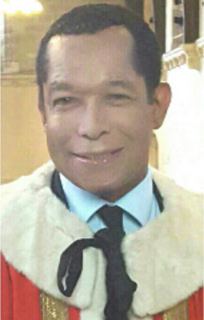There have been a number of references to black defendants during our debate. I do not put myself forward as an expert witness on the issue simply because I have a black skin, but I have represented a number of black clients in the criminal courts over the years. What I have found is that, rather than seeking an O. J. Simpson verdict, what they seek is simply a fair trial. So I totally support the comments made by the noble Lord, Lord Dholakia, and the noble Baroness, Lady Kennedy.
Diamonds are made under pressure. Having created this jewel in the criminal justice crown, I believe it would be wrong to replace it with something which is perceived to be inferior. That is why I support the amendment Rat forward by the noble Lord, Lord Cope.
The moment we stop listening we stop learning. But it is difficult to gather what genuine arguments the Home Secretary has heard now to propose something which he denounced in opposition. I have tried to keep an open mind about it. Yes, of course it would be unrealistic to claim that no defendant ever chose jury trial simply to delay proceedings. In one of my earliest cases at a Crown Court I had to represent a chap accused of the burglary of a grocer’s shop. It was alleged that he had stolen a crate of oranges which he dropped during the police chase after the alarm went off. You could say it was one of my first “juicy” cases. Apparently, he believed that the oranges would go rotten and perish while he awaited jury trial, so destroying the crucial evidence against him. I explained to him that exhibit A was a bundle of colour photographs of the said oranges that the prosecution were perfectly entitled to rely upon. He pleaded guilty.
However, that is not my common experience. The serious point I make is that the number of defendants electing to be tried at the Crown Court is falling—we have already heard the figures— from 52 per cent in 1987 to just under: 30 per cent this year. The trend continues to fall.
There have been a number of excellent speeches, so the remarks I make will be much briefer than would otherwise have been the case. It is claimed that the Bill will save money, and there is some dispute about that. In my opinion, the better way to save expense is to make the legal process from police to the courts more efficient. Of those charged with either-way offences, 25 per cent never get to court or are discontinued, as the prosecution offers no evidence. Most of the defendants will already have got legal aid by that time, at the taxpayer’s expense. So again I totally endorse the views expressed by the noble Baroness, Lady Kennedy, on improving the efficiency of the system. In my opinion that is the better way forward.
Confidence in the criminal justice system is vital. Some black and Asian defendants choose jury trial because they fear that they will not get a fair hearing by magistrates. That is not the same as saying that they seek an O. J. Simpson verdict. It is a very different point.
To have the right to elect jury trial removed from them will only further reduce their faith in the system. At a time when the Macpherson report highlighted ways of improving race relations, the Bill could cast a shadow once more. Once the right to elect trial is lost, it will be difficult to win it back. The Government must not sail out further than they can row back. So many organisations are against this, including the Bar Council, the Law Society, the Black Lawyers Association, Liberty, Justice and the Legal Action Group. It is time the Government faced the music, even though they do not like the tune. 20 January 2000
